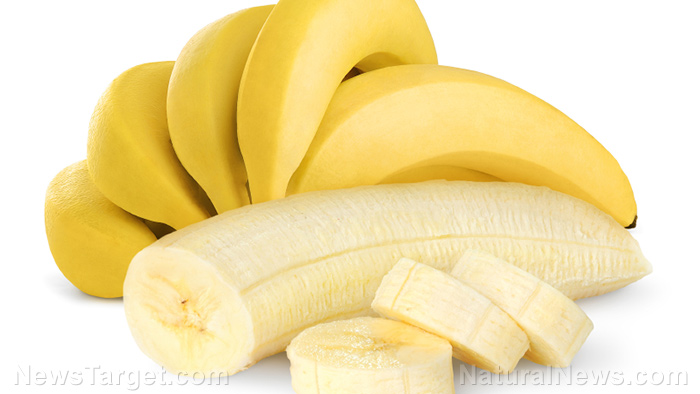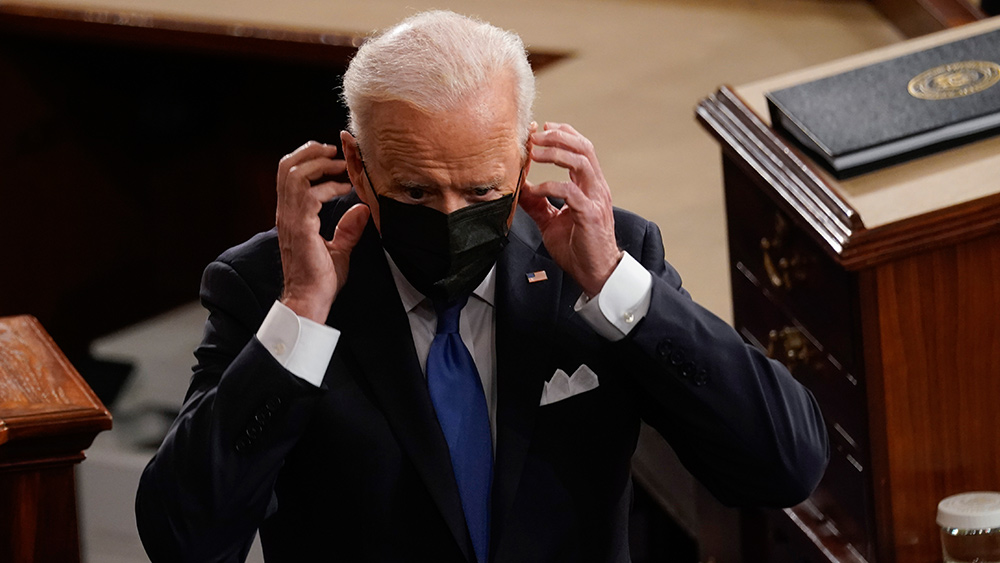Study: Molecularly engineered antiviral banana lectin may be effective against COVID-19 infection
11/03/2022 / By Kevin Hughes

Researchers from various universities and institutions around the world have found that a molecularly engineered banana lectin called H84T-BanLec can prevent the entry of viruses into host cells.
This means that H84T-BanLec could prevent Wuhan coronavirus (COVID-19) infection.
H84T-BanLec can bind to several mannose-binding sites of the spike protein to restrict virus entry into host cells, thereby preventing coronavirus infections. This antiviral mechanism makes it difficult for the virus to develop its drug resistance, making H84T-BanLec a promising anti-coronavirus drug.
Because of the special antiviral mechanism of H84T-BanLec, the researchers noted that it may also be very effective against the latest SARS-CoV-2 strains and other coronaviruses that may emerge in the future.
It also has antiviral effects against other viruses, such as the influenza virus, so intranasal H84T-BanLec may be an effective means to deal with seasonal surges of respiratory viruses.
The study has been published in the scientific journal Cell Reports Medicine.
H84T-BanLec also effective against other viruses
The radical new treatment copied from banana protein was originally designed to target the flu virus. Researchers ultimately targeted other viruses, but COVID-19 lockdowns temporarily put the research on hold.
“We thought MERS would be the big target, which we were worried about because of its 35 percent mortality rate,” stated Dr. David Markovitz, professor of internal medicine at the Division of Infectious Diseases at the University of Michigan Medical School. A 2015 MERS outbreak caused 858 confirmed deaths.
The peer-reviewed study explains how H84T-BanLec works against all known coronaviruses, MERS and the original SARS.
“When COVID-19 occurred, we of course wanted to study the therapy’s potential. And we discovered that it was effective against every type of coronavirus, in vitro and in vivo. Whether delivered systemically or through the nose in animal models, or prophylactically or therapeutically early on in the illness – it worked,” Markovitz said.
H84T-BanLec achieves its extraordinary viral-blocking abilities by binding to high-mannose glycans, polysaccharides that are present on the surface of the viruses, but only very seldom on normal healthy human cells. After the binding, the virus cannot get into cells to infect them.
Employing atomic force microscopy and related methods, the team verified that H84T-BanLec forms multiple strong bonds with the spike protein, which possibly explains why it is difficult for a coronavirus to be resistant to the lectin.
Markovitz noted that lectins have traditionally been avoided as available therapies because they are proteins that can stimulate the immune system in a likely harmful way. However, H84T-BanLec has been modified to take away the possible harmful effect. (Related: Dr. Lee Merritt tells Dr. Alan Keyes: Effective COVID treatments are suppressed to continue push for vaccines – Brighteon.TV.)
According to the researchers, H84T-BanLec presents a promising solution because it is effective against all coronavirus variants and influenza viruses.
The team envisions a nasal spray or drops that can be used to prevent or treat coronavirus and influenza infections in seasonal and pandemic situations. They also hope to examine using H84T-BanLec against cancer – as cancer cells also have high mannose glycans on their surfaces just like viruses.
Follow AlternativeMedicine.news for more news about alternative COVID-19 treatments.
Watch the video below about an existing drug that can treat COVID-19 infections.
This video is from the InfoWars channel on Brighteon.com.
More related stories:
A wild species of banana native to South Asia found to have powerful antidiabetic properties.
Pandemic Health Alliance fights to allow hydroxychloroquine, ivermectin for early treatment of covid.
Sources include:
Submit a correction >>
Tagged Under:
alternative medicine, antiviral, banana, biotech, breakthrough, covid-19, discoveries, food science, H84T-BanLec, health science, infections, lectin, outbreak, pandemic, phytonutrients, prevention, research, SARS-CoV-2, spike protein
This article may contain statements that reflect the opinion of the author
RECENT NEWS & ARTICLES
COPYRIGHT © 2017 Antiviral.News
All content posted on this site is protected under Free Speech. Antiviral.news is not responsible for content written by contributing authors. The information on this site is provided for educational and entertainment purposes only. It is not intended as a substitute for professional advice of any kind. Antiviral.news assumes no responsibility for the use or misuse of this material. All trademarks, registered trademarks and service marks mentioned on this site are the property of their respective owners.




















